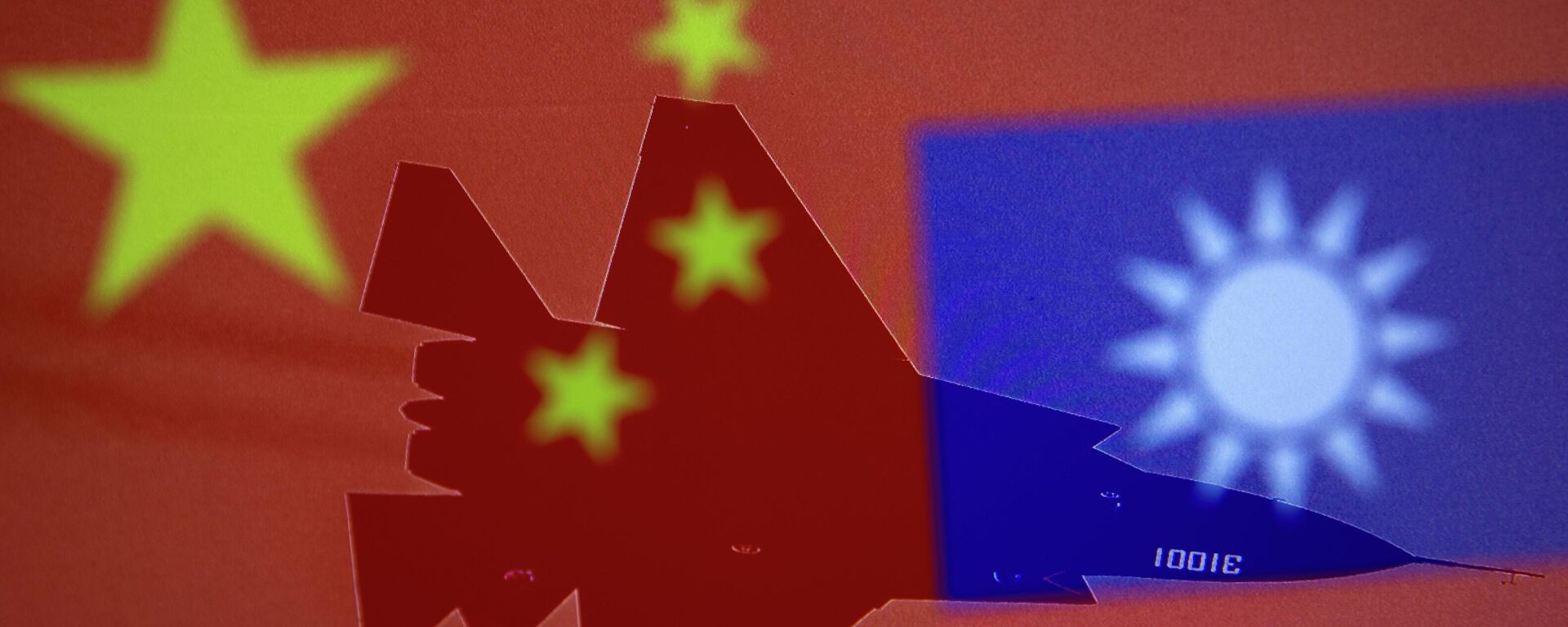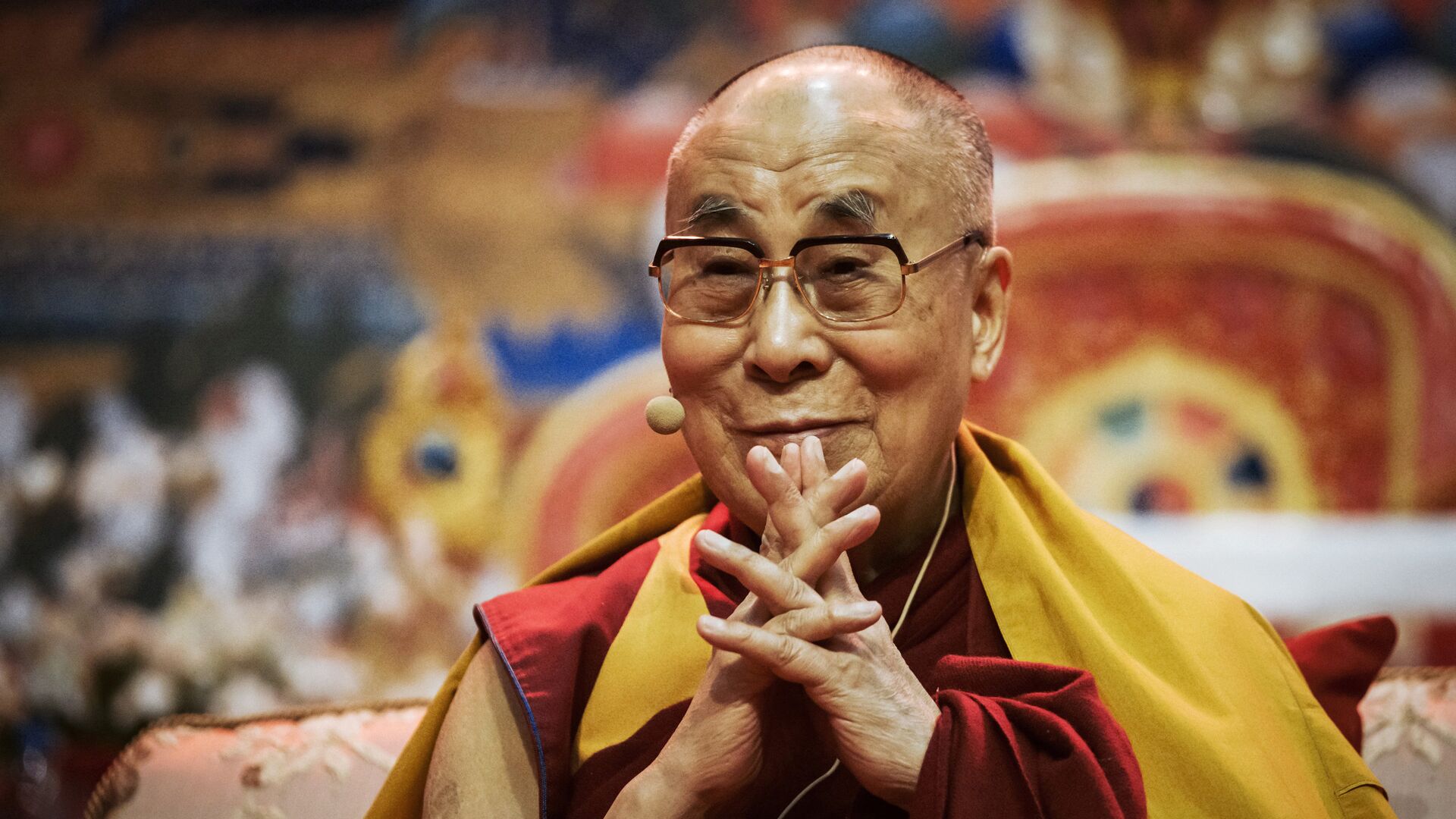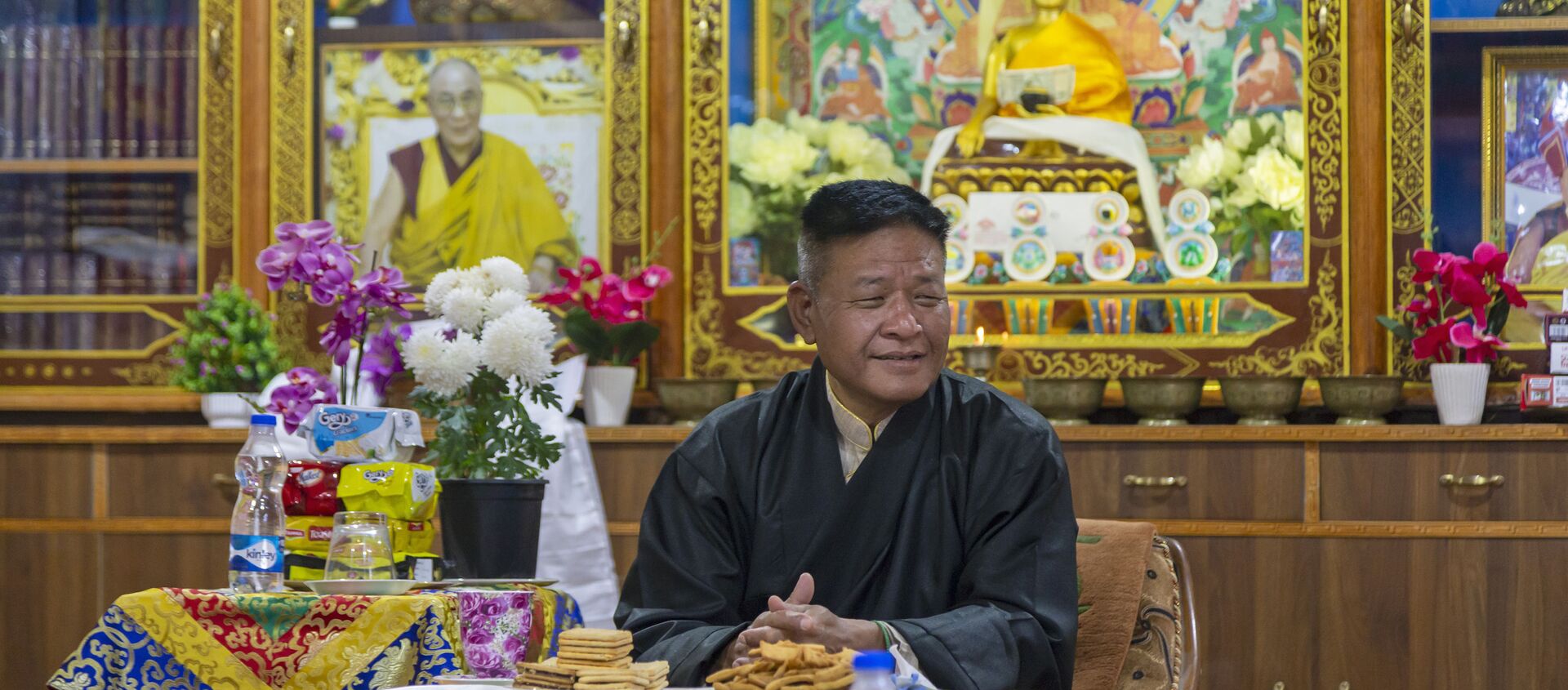https://sputnikglobe.com/20211110/dalai-lama-slams-ccp-for-not-understanding-variety-of-different-cultures-1090622455.html
Dalai Lama Slams CCP for Not Understanding ‘Variety of Different Cultures’
Dalai Lama Slams CCP for Not Understanding ‘Variety of Different Cultures’
Sputnik International
The Dalai Lama fled to India in 1959 after Beijing cracked down on a failed uprising by the Tibetan population. Although the Tibetans were granted refuge by... 10.11.2021, Sputnik International
2021-11-10T14:41+0000
2021-11-10T14:41+0000
2023-06-19T12:43+0000
dalai lama
tibet
china
taiwan
https://cdn1.img.sputnikglobe.com/img/107546/89/1075468924_0:0:2997:1686_1920x0_80_0_0_7da3a771cf9c310c4aa14bc6c63b5f34.jpg
Tibet's spiritual figurehead the Dalai Lama on Wednesday slammed China's ruling Communist Party, saying that “the narrow-minded Chinese communist leaders don’t understand the variety of different cultures.”“Regarding Tibet and Xinjiang, we have our own unique culture … It is not just the Han people. There are Tibetans, Uyghurs and other different groups. That should [be reflected] in policy matters,” he said.The Han people comprise China's dominant ethnic group and account for nearly 90 percent of the nation's population.The 86-year-old Tibetan Buddhist leader was addressing a question at the end of a virtual lecture on the theme ‘Cultivating a Good Heart’, organised by the Foreign Correspondents Club of Japan and Tibet House, Japan.The Dalai Lama was speaking from the Indian hill town of Dharamshala, the winter capital of the state of Himachal Pradesh and where the Tibetan-government-in-exile is located. He expressed the hope that things in China would improve once the “newer generation” takes charge of the Chinese Communist Party's (CCP) leadership in the future.Regarding his stay in India, in reply to a question during the online conference, the exiled religious leader said that he preferred remaining in India to travelling back to his birthplace in China’s Tibet Autonomous Region (TAR).“I once met [India's former prime minister] Manmohan Singh and told him that I want to be here for the rest of my life. I prefer India,” he added.“In India, there is complete freedom and religious harmony. All the major world religions exist in India. I could contribute much more towards the preservation of Tibetan culture from here,” he also remarked.On a question about Taiwan’s political status and its ties with Beijing, the Dalai Lama said that the “true Han culture” and tradition was present in Taiwan."I really pray for a unified mainland China and Taiwan,” the monk stated, adding that he wanted the reunification process to be "peaceful".The remarks by the Dalai Lama come as tensions rise between China and the self-governed Chinese province of Taiwan. Taipei has been complaining that Chinese fighter jets have been violating its air defence zones repeatedly over the past few months and it has also condemned political rhetoric calling for “reunification”.In his speech on the 100th anniversary of the Chinese Communist Party, President Xi Jinping said that “solving the Taiwan question and realising the complete reunification of the motherland are the unswerving historical tasks of the Chinese Communist Party and the common aspiration of all Chinese people.”
https://sputnikglobe.com/20210605/beijing-must-invite-current-dalai-lama-to-china-before-choosing-a-successor-says-tibets-new-leader-1083055071.html
https://sputnikglobe.com/20211110/pla-eastern-theater-command-conducts-combat-readiness-patrol-near-taiwan-straits-1090618994.html
tibet
china
taiwan
Sputnik International
feedback@sputniknews.com
+74956456601
MIA „Rosiya Segodnya“
2021
News
en_EN
Sputnik International
feedback@sputniknews.com
+74956456601
MIA „Rosiya Segodnya“
Sputnik International
feedback@sputniknews.com
+74956456601
MIA „Rosiya Segodnya“
dalai lama, tibet, china, taiwan
dalai lama, tibet, china, taiwan
Dalai Lama Slams CCP for Not Understanding ‘Variety of Different Cultures’
14:41 GMT 10.11.2021 (Updated: 12:43 GMT 19.06.2023) The Dalai Lama fled to India in 1959 after Beijing cracked down on a failed uprising by the Tibetan population. Although the Tibetans were granted refuge by the then Indian Prime Minister, Jawaharlal Nehru, Delhi has always committed itself to the One-China Policy. Beijing, on its part, views the Dalai Lama as a “dangerous separatist”.
Tibet's spiritual figurehead
the Dalai Lama on Wednesday slammed China's ruling Communist Party, saying that “the narrow-minded Chinese communist leaders don’t understand the variety of different cultures.”
“The idea of Communism is good, but at times they try to exert too much control… As I have said earlier, I really love Marxism and Communism,” said the 14th Dalai Lama.
“Regarding Tibet and Xinjiang, we have our own unique culture … It is not just the Han people. There are Tibetans, Uyghurs and other different groups. That should [be reflected] in policy matters,” he said.
“But in reality, [there is] too much control by [the] Han people,” the Dalai Lama added.
The Han people comprise China's dominant ethnic group and account for nearly 90 percent of the nation's population.
The 86-year-old Tibetan Buddhist leader was addressing a question at the end of a virtual lecture on the theme ‘Cultivating a Good Heart’, organised by the Foreign Correspondents Club of Japan and Tibet House, Japan.
The Dalai Lama was speaking from the Indian hill town of Dharamshala, the winter capital of the state of Himachal Pradesh and where the Tibetan-government-in-exile is located.
He expressed the hope that things in China would improve once the “newer generation” takes charge of the Chinese Communist Party's (CCP) leadership in the future.
Regarding his stay in India, in reply to a question during the online conference, the exiled religious leader said that he preferred remaining in India to travelling back to his birthplace in China’s Tibet Autonomous Region (TAR).
“I really enjoy my position here in India. Pandit Jawaharlal Nehru [India’s first Prime Minister] chose my permanent residence here. And I really enjoy it here. I can communicate with everybody from here. So, it is very free,” said the Dalai Lama.
“I once met [India's former prime minister] Manmohan Singh and told him that I want to be here for the rest of my life. I prefer India,” he added.
“In India, there is complete freedom and religious harmony. All the major world religions exist in India. I could contribute much more towards the preservation of Tibetan culture from here,” he also remarked.
On a question about Taiwan’s political status and its ties with Beijing, the Dalai Lama said that the “true Han culture” and tradition was present in Taiwan.
“In China, [the Han culture] is too politicised ... I feel that mainland Chinese brothers and sisters can learn a lot from Taiwanese brothers and sisters in spirituality and culture," he said. He was talking about how the Han culture has flourished better in Taiwan than in China.
"I really pray for a unified mainland China and Taiwan,” the monk stated, adding that he wanted the reunification process to be "peaceful".
The remarks by the Dalai Lama come as tensions rise between China and the self-governed Chinese province of Taiwan.
Taipei has been complaining that Chinese fighter jets have been violating its air defence zones repeatedly over the past few months and it has also condemned political rhetoric calling for “reunification”.
In his speech on the 100th anniversary of the Chinese Communist Party,
President Xi Jinping said that “solving the Taiwan question and realising the complete reunification of the motherland are the unswerving historical tasks of the Chinese Communist Party and the common aspiration of all Chinese people.”

10 November 2021, 10:02 GMT





